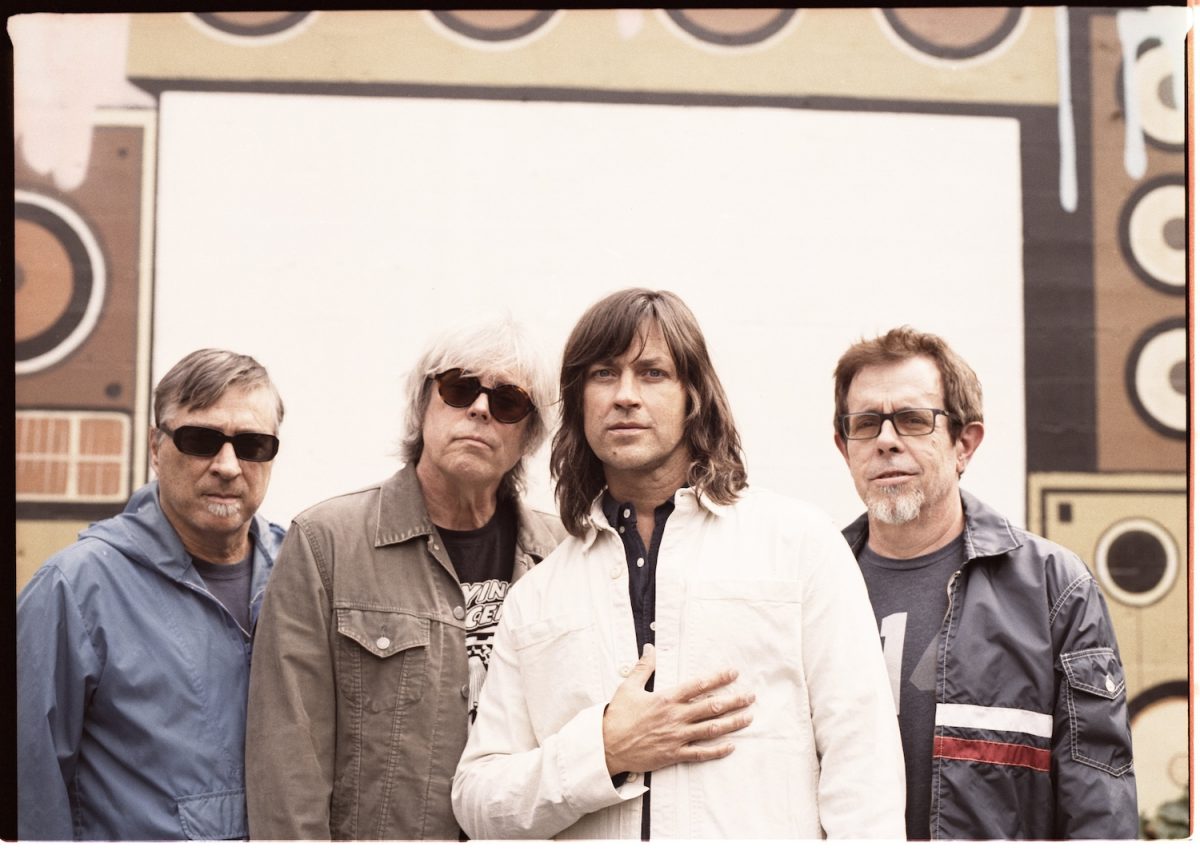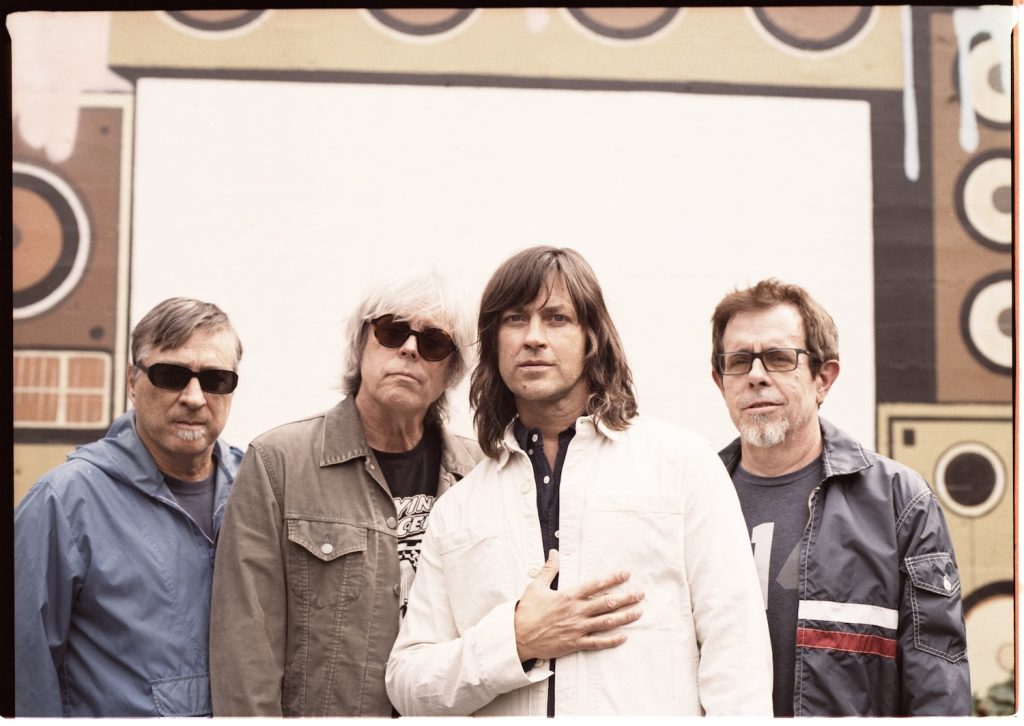
Old 97’s mark the 30th anniversary of their 1994 debut, Hitchhike To Rhome, with a new album that finds them playing more like a cohesive unit than ever. American Primitive (ATO) has a souped-up shuffle that harkens back to the group’s early years—minus the nervous energy. Its title lifted from a bit of fictional critique in the Stephen King novel Duma Key, the album was recorded quickly and efficiently at Portland, Ore.’s Flora Recording & Playback with little-to-no prep work. They found the perfect producer in Tucker Martine (My Morning Jacket, Neko Case). Much like Wally Gagel did on the band’s 1997 album, Too Far To Care, Martine finds the sweet spot, balancing a fat studio sound with the spontaneity of live performance. The LP also features contributions from R.E.M.’s Peter Buck and Scott McCaughey (Young Fresh Fellows, Minus 5).
With almost 50 shows on the agenda through September, Old 97’s are spending April out West. They’ll take a short break in June before hitting the Midwest and East Coast this summer. MAGNET checked in with Rhett Miller, Murry Hammond and Ken Bethea in Tucson, Ariz., a few hours before a show at the storied Hotel Congress.
This certainly isn’t the same band that recorded Hitchhike To Rhome, but it does feel like you are returning to your roots on American Primitive.
Rhett Miller: Some people have said it sounds like our first record or two. But, in a lot of ways, it’s nothing like that. We could never have done what we’re doing on this record back then. I didn’t know how to sing like I was supposed to sing. Ken is a hundred times the guitar player he was back then.
Ken Bethea: The big song on the album, “Where The Road Goes,” is completely something we wouldn’t have done then. It’s emotional, and it’s the only song where we’ve ever had Philip (Peeples) make a drum loop. Rhett’s just playing a straight strum through it and gets kind of meditative.
Miller: It takes a level of confidence to do that. It’s a statement, for better or worse. Even when I was writing it, I was like, “Oh my God, is this too much? Is this cheesy?” It’s really an earnest song about gratitude. Ugh, horrible. But it wound up working.
What role did Tucker Martine play in shaping the record?
Miller: We were working so quickly that I don’t think we gave him much time to do anything. But the atmosphere he created—the positivity he embodied and his relaxed approach to recording—really made it easy to make this kind of record. It was a fast, off-the-cuff recording. Really, it’s a record of where our band is now, 30 years in.
Murry Hammond: If it emulates the energy and looseness of our early days, it’s purely accidental, really. It may be more of a tribute to the production than us in the room. We do this all the time. It’s just a question of whether you can capture it.
Bethea: I think it was 11 days we were in there. It wasn’t long. When we went to Portland, we hadn’t even rehearsed the songs, and we started tracking from day one.
Miller: It was harder for Ken because he had to come up with iconic guitar parts on the spot. I’d already written the songs and agonized over them.
The studio was a former motorcycle club. Did it have that biker vibe?
Hammond: No, but bad stuff happened in the basement.
Miller: It had a really creepy secret room down there. At one point, some guy came by and asked us if we knew the history behind the building. I don’t know if there are nice biker clubs, but this was not a nice biker club. When Tucker moved in, he had to do all this hippie-dippy smudging to get the bad juju out of it.
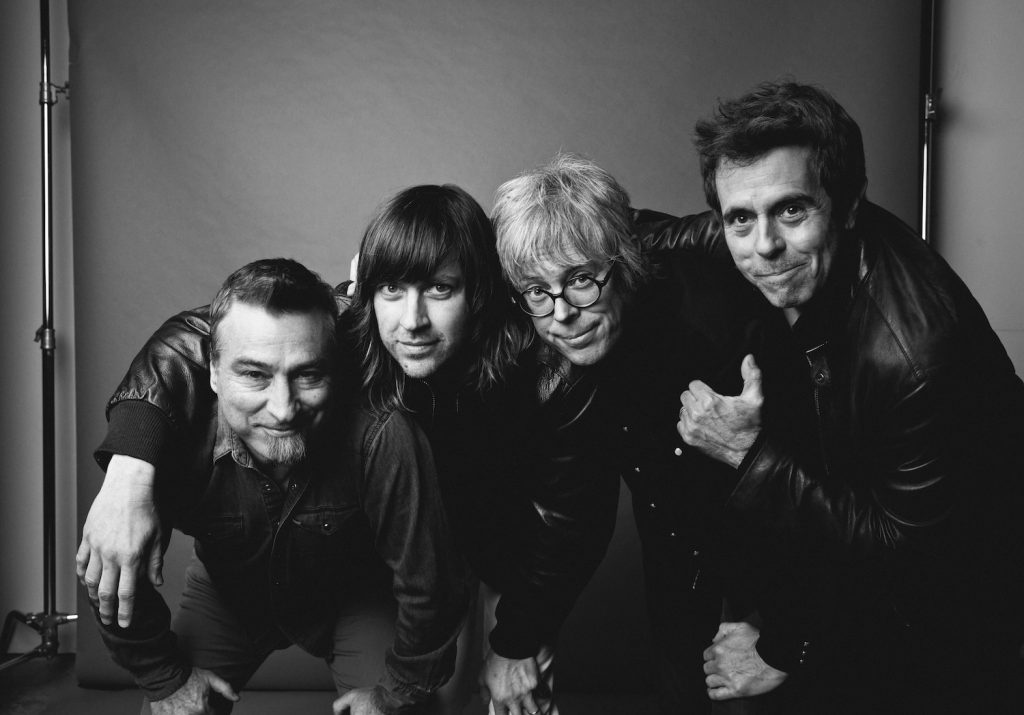
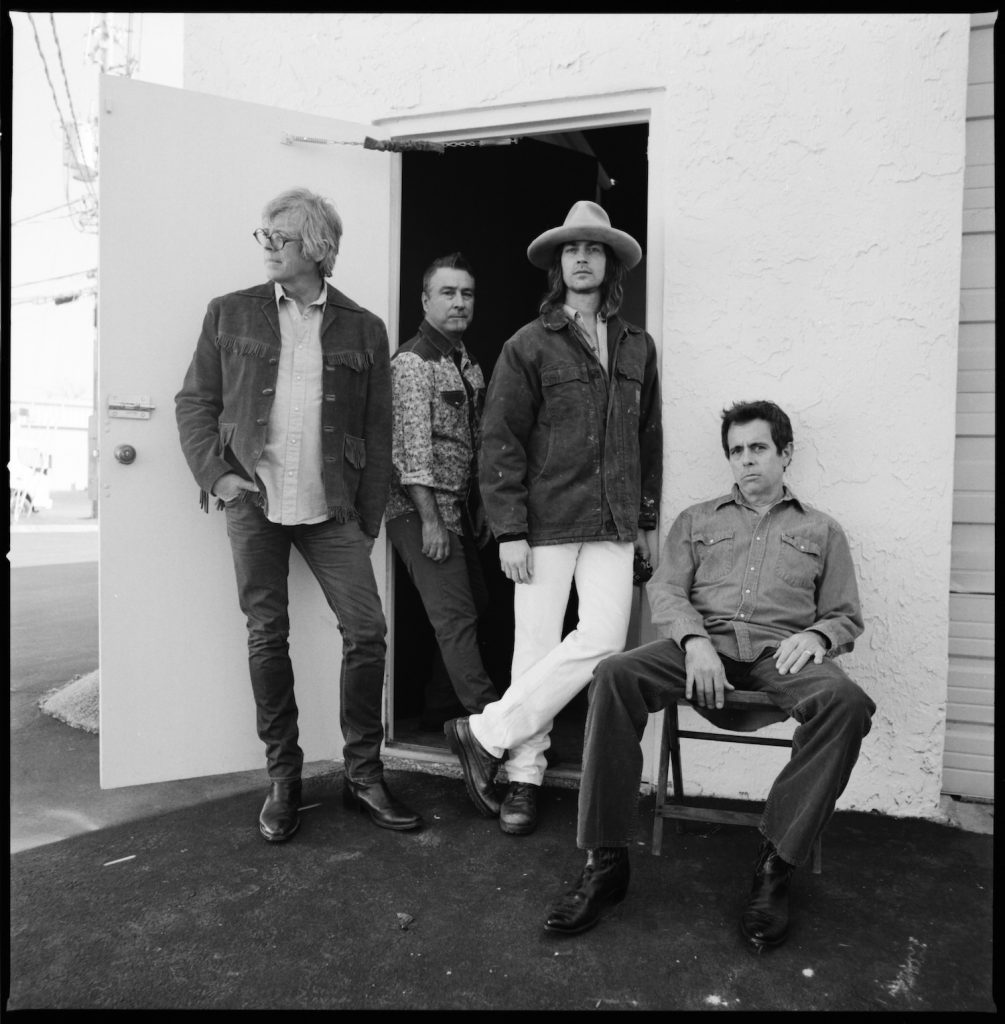
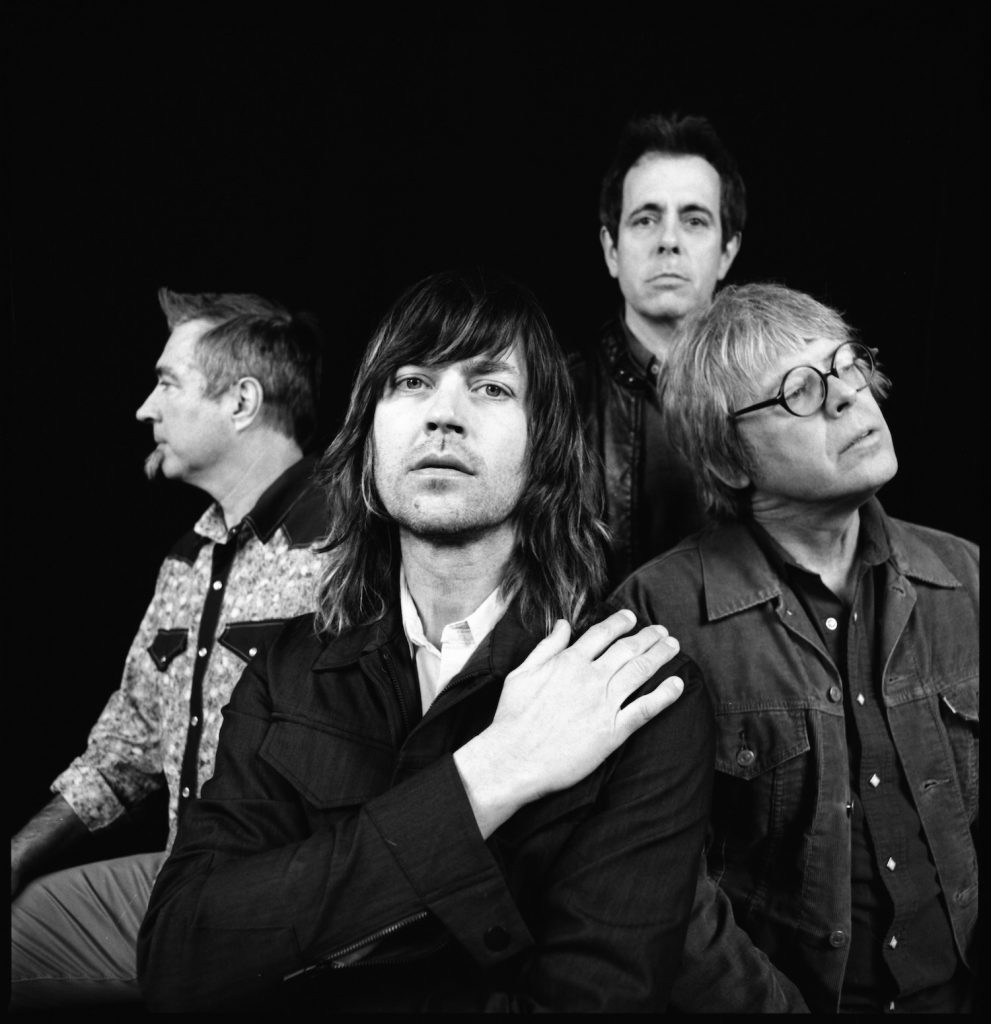
What was the process like for vetting songs on this record?
Bethea: About a year and a half ago, we were doing a Midwest string of shows, and my best friend drove Rhett and me to the gigs. Rhett had 40 frigging demos, and we listened to them all and made comments. It was a little awkward because …
Miller: I was sitting right there.
Bethea: And not every song would be the best song. It was like, “You know how I said the last song was the best I’ve ever heard? Well, it’s shit compared to this one.” [Laughs]
Miller: I’ve always made demoes and driven around and listened to them. But it was great to be able to do that with Ken and his best friend, who’s known us since the earliest days of the band. Day after day, we’d listen to songs, and I’d make notes. That helped a lot, because we didn’t get to do pre-production on this album.
What’s the story behind “Estuviera Cayendo,” the instrumental that ends the album?
Bethea: Jeff Trapp is a professional flamenco guitar player. He’s also our merch seller, and he’s been touring with us since 2003.
Miller: I had this idea for a musical reprise of (album opener) “Falling Down,” which has sort of Spanish feel to it. I challenged Jeff to write a flamenco version of it, and he really dug into it and wrote a beautiful piece. We had a laugh the other day when Rolling Stone’s review of the album came out. They talked about me by name, and they talked about Jeff Trapp by name, but they don’t mention anybody else by name.
And there’s also a great story behind the cover.
Hammond: That’s my boy, Tex. He’s been a semi-professional artist for a few years now, and he’s 17.
Miller: He’s the youngest painter to be showcased at the LA Art Show.
Hammond: It was Ken’s idea for him to do a cover of some sort …
Miller: Hey, it was my idea! Or maybe it was both of us at the same time.
Hammond: My instructions to Tex were, “Do whatever you want. Here’s the title.” He came up with this horse—he loves the Picasso horses. His mom, Grey, glued some brown paper to the canvas, and Tex painted over the paper.
It’s a near-miracle that, after 30 years, your original lineup is still intact.
Miller: It’s helped that we each have our own separate lives and come together to do this. It’s a lot of figuring out that you don’t have to win every fight or let your ego push you into whatever conflict is happening that day.
Bethea: We all love the Rolling Stones, and they’ve been doing it for 60 years. But as Brian (Henneman) from the Bottle Rockets once pointed out, it’s a lot easier to do that if you’re the Rolling Stones and not the Bottle Rockets. But there is something to the fact that we’re not a huge band.
Miller: I sometimes wonder what would’ve happened if we’d had a big ’90s hit. We’d be time-stamped and playing on one of those nostalgia tours. Because we’re not time-stamped, people still respond to and request songs from the past five or 10 years as much as they do the old stuff—and that’s pretty cool.
—Hobart Rowland
See Old 97’s live.


